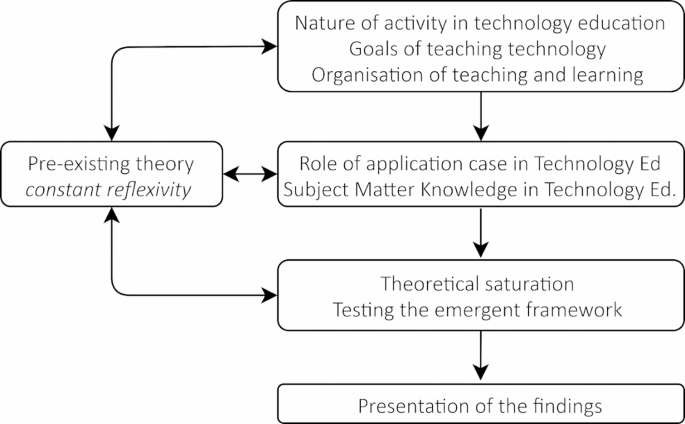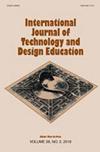Subject(s) matter: a grounded theory of technology teachers’ conceptions of the purpose of teaching technology
IF 2.7
3区 工程技术
Q2 EDUCATION & EDUCATIONAL RESEARCH
International Journal of Technology and Design Education
Pub Date : 2023-10-21
DOI:10.1007/s10798-023-09859-1
引用次数: 0
Abstract
Abstract Technology education internationally has for some time struggled to achieve continuity between what is depicted in policy and curricular documents and the reality of day-to-day practices. With its focus often articulated through the nature of activity students are to engage with, technology teachers are recognised as having significant autonomy in the design and implementation of their practices. From this, it is important to understand teachers’ beliefs about technology education, as their conceptions of the subject will inform practice. As such, this study sought to investigate teachers’ conceptions of the purpose of teaching technology through reflection on their enacted practices. A constructivist grounded theory methodology was employed for the design of the study and analysis of data. According to our analysis, despite similarities between the nature of student activity that teachers designed and implemented, teachers represented the purpose of the subject in different ways. Three different conceptions of the purpose of teaching technology were identified; obtaining knowledge and skills for application, ability to act in a technological way, and ability to think in a technological way. Central to the three conceptions were contentions in the representations of what constituted subject matter knowledge in the subject, and the role that different application cases played in teaching technology. Without consideration and explicit articulation of the purposes for teaching technology, this lack of clarity and differences in rationale for teaching technology are likely to continue.

主题(s) matter:技术教师对教学技术目的概念的一种扎根理论
一段时间以来,国际上的技术教育一直在努力实现政策和课程文件中所描述的内容与日常实践的现实之间的连续性。由于技术教师的重点通常是通过学生参与的活动的性质来表达的,因此人们认为技术教师在设计和实施实践方面具有很大的自主权。由此,了解教师对技术教育的信念是很重要的,因为他们对学科的概念将影响实践。因此,本研究试图通过反思其制定的实践来调查教师对教学技术目的的概念。本研究采用建构主义扎根理论方法设计研究及分析资料。根据我们的分析,尽管教师设计和实施的学生活动的性质相似,但教师以不同的方式代表了主题的目的。对教学技术目的的三种不同概念进行了界定;获得用于应用的知识和技能,以技术方式行事的能力,以及以技术方式思考的能力。这三个概念的核心是对学科中构成学科知识的表征的争论,以及不同应用案例在教学技术中所起的作用。如果不考虑和明确阐述教学技术的目的,这种缺乏明确性和教学技术基本原理的差异可能会继续存在。
本文章由计算机程序翻译,如有差异,请以英文原文为准。
求助全文
约1分钟内获得全文
求助全文
来源期刊
CiteScore
5.30
自引率
19.00%
发文量
61
审稿时长
>12 weeks
期刊介绍:
The International Journal of Technology and Design Education seeks to encourage research and scholarly writing about any aspect of technology and design education. Critical, review, and comparative studies are particularly prominent, as are contributions which draw upon other literatures, such as those derived from historical, philosophical, sociological or psychological studies of technology or design, in order to address issues of concern to technology and design education.
One of the most significant developments of recent years has been the emergence of technology and design education as an integral part of general education in many parts of the world. Its distinctive curriculum features are technological literacy and capability and it highlights the importance of `knowledge in action'', of `doing'' as well as `understanding''.

 求助内容:
求助内容: 应助结果提醒方式:
应助结果提醒方式:


